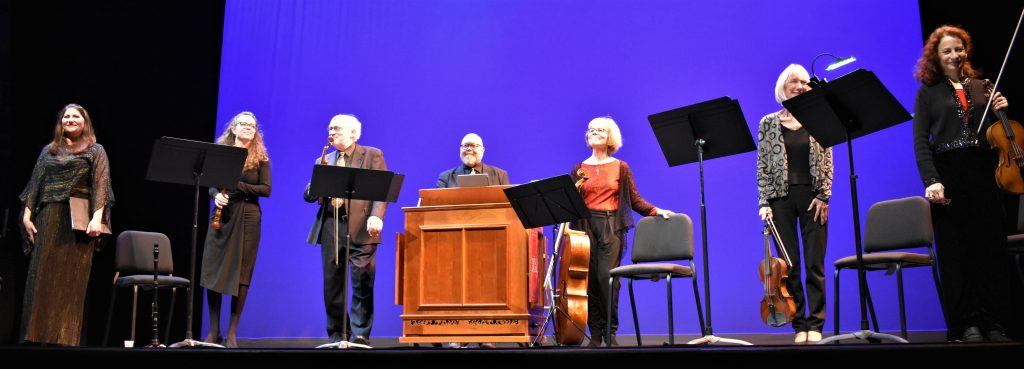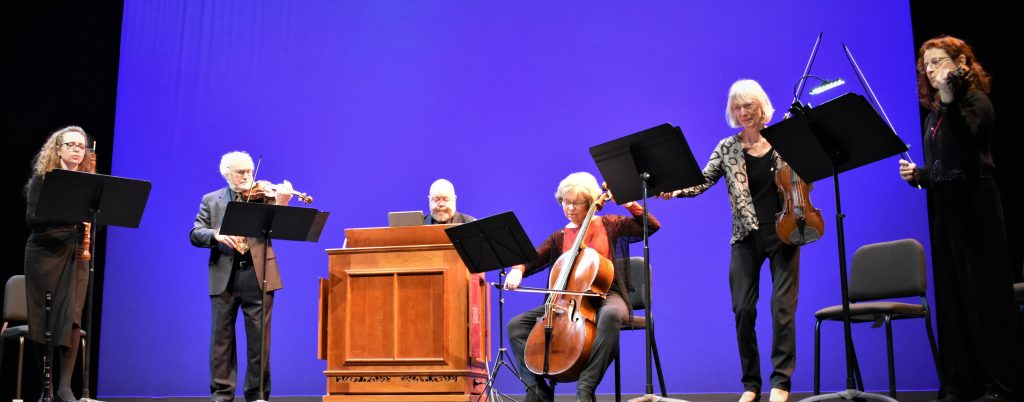
by Kevin T McEneaney
“Music for a Winter Solstice” was the program for Aston Magna Chamber Ensemble last Tuesday night: a program of Handel and Bach. Sunlight will stop waning and begin waxing. For baroque musicians, the light may be Handel, or better yet, Bach, both great German composers born in 1685.
Sometimes music can transport one. At Hudson Hall we were transported to a villa outside of Milan where the weather was thirty degrees warmer. Curzio Malaparte sat down on my right while Jean Giraudoux sat on my left with his imaginary dog who accompanied him everywhere. Among canines, the dog was well-known to be a connoisseur of music, almost a music critic.
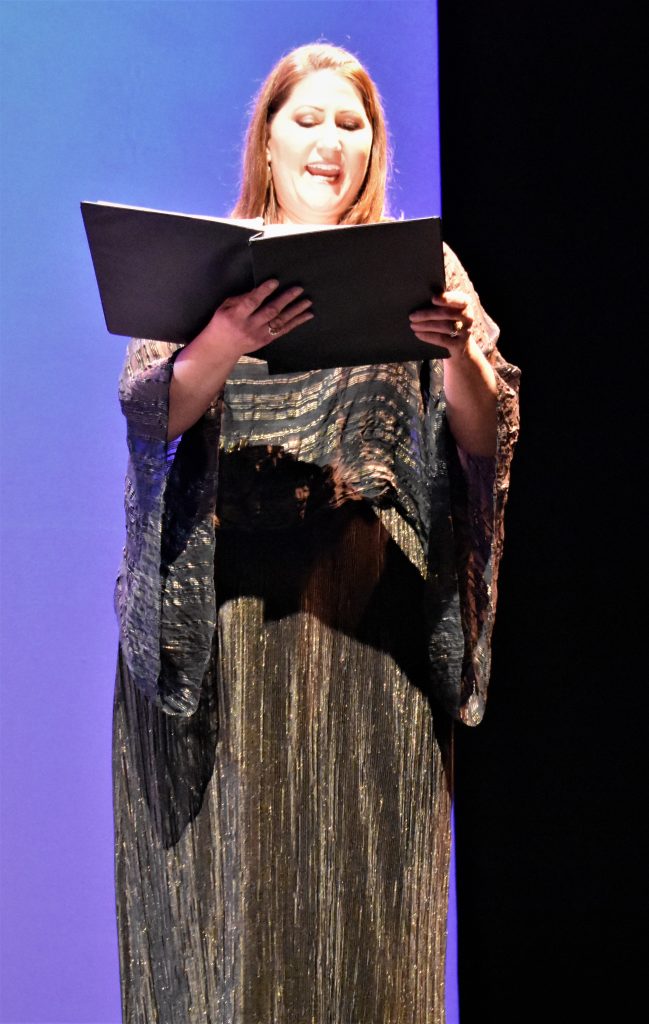
The program was in Italian and German: Handel, Intermission, Bach. The opened with Sonata in G Major, Op.5, No. 4. This was played with two baroque violins (Daniel Stepner and Julie Leven) with Loretta O’Sullivan on baroque cello, and Laura Jeppesen on baroque viola. Stepner noted that it was rather like an early quartet. The lively and charming Allegro with Stepner’s virtuoso violin leading, gave way to a more serious Allegro with accomplished violinist Leven leading, then breaking into casual ensemble mode for three delightful dance modalities: Passacaille, Giga, and concluding Minuet. For the dance ensemble, Peter Sykes on portable organ joined in. We danced in imagination to the lithesome light arriving via imagination which limed the coming of more light in our lives. The dog, Puck, happily licked its paws as the audience applauded.
Mezzo-soprano Deborah Rentz-Moore sang Handel’s (HMV 173) Cantata “Un alma inamorata” (A soul in love) in golden, flawless Italian. This piece was composed in early youth by Handel when he resided in Italy before he made the great leap to England. The lyrics depicted a youthful, wickedly wanton spirit of amorous adventure sung as if it was pre-religious sensibility that was the current norm. Curzio felt completely at home.
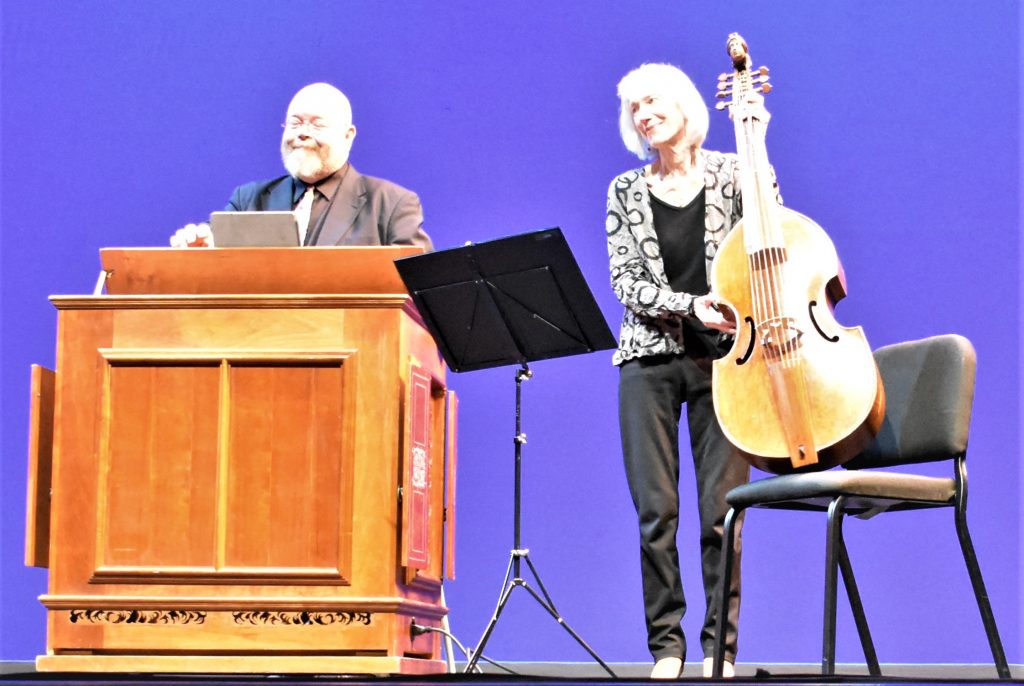
Puck uttered not a single bark during the short Intermission. Bach’s “Schafe können sicher weiden” (“Sheep may safely graze” (from Cantata BWV 208) delivered a sylvan landscape of rural bliss. Allegro (BWV 1040) featured Laura Jeppesen on viola da gamba, which was played with fabulous resonance. (While this baroque instrument does not have the range of the cello, it is thrillingly capable of delivering intense emotion.) During this long piece the organ played a more prominent role in the ensemble.
In Christmas season spirit (Cantata BWV 170) Vergnügte Ruh, bellebte Seelenljst (Blessed Peace, delight of the soul) was expertly played and sung with the addition of Pricilla Herreid on baroque oboe and oboe d’amore. This joyful large ensemble was to send us forth as ambassadors of peace. (Christmas is the birthday of Mithra, Persian God of War, which in Dionysian reversal, Christians celebrate as the birth of the Rabbi of Peace.)
Puck mouthed barking noises during the standing ovation, yet no sound emerged from his throat.
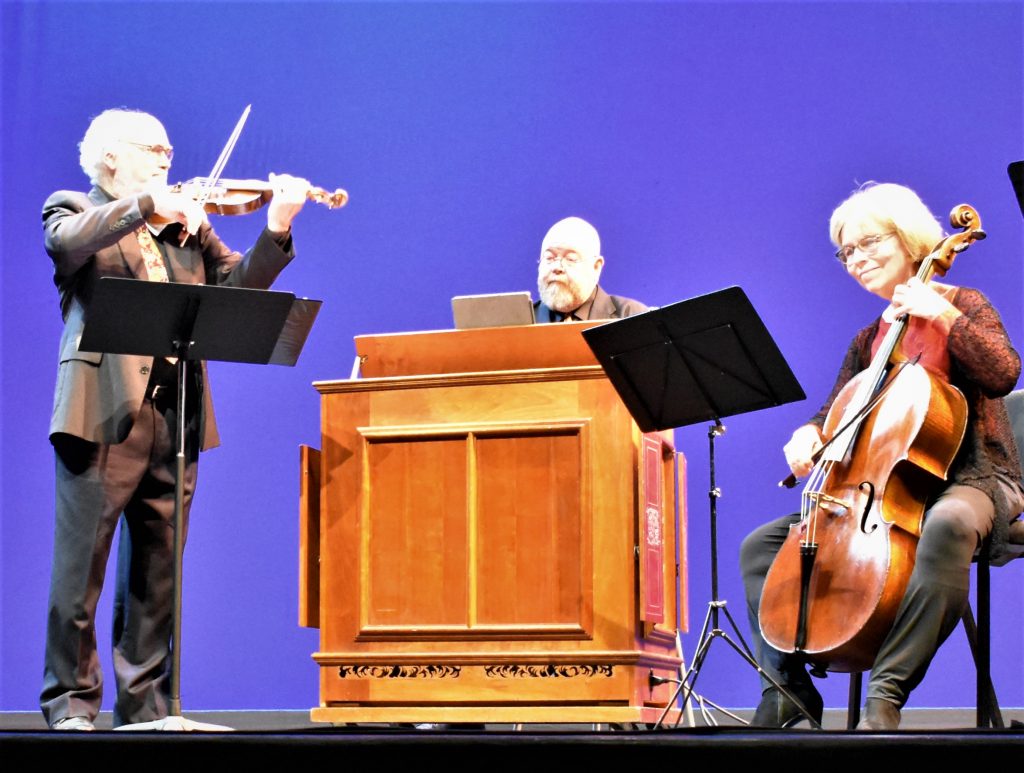
About the program: most of this material is not available (unless you have a complete works set) on recordings, nor are these works even mentioned in the major books on Handel or Bach. This concert was a once-in-a-lifetime event—that is the characteristic nature of an Aston Magna concert. They will be playing at Hudson Hall for five consecutive weekends next Spring.
I don’t plan to bring Puck to any future concerts.
